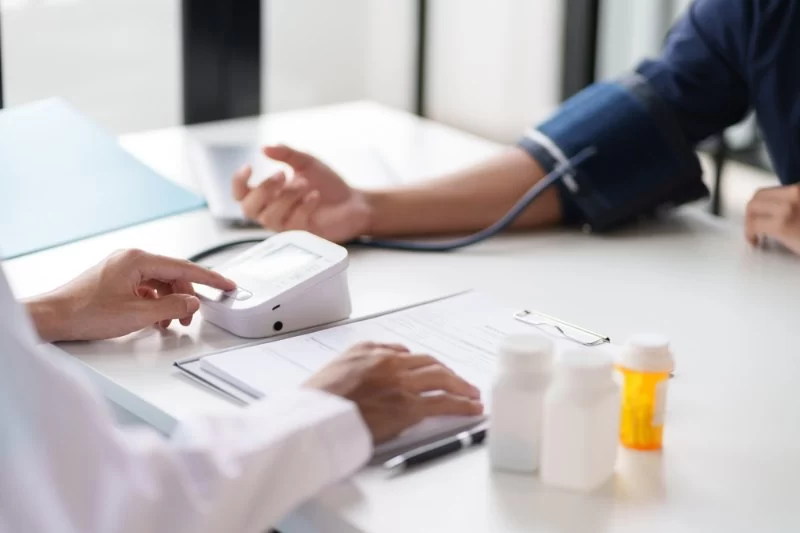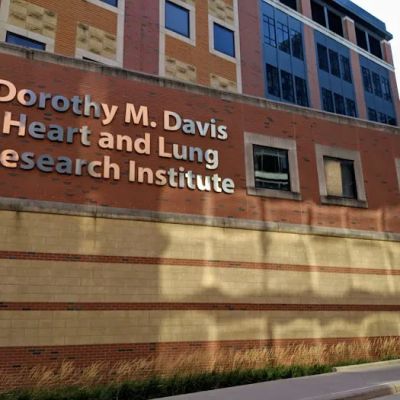1. Introduction to Blood Pressure Management Without Medication
Managing blood pressure is crucial for overall heart health, and many people seek ways to do so without relying on medication. While pharmaceutical interventions can be effective, adopting natural methods to control blood pressure can lead to long-term benefits with fewer side effects. In this article, we'll explore various strategies for managing blood pressure through lifestyle changes, diet, and exercise, which can be just as effective as medication when done consistently.

2. Understanding Hypertension and Its Risks
Hypertension, or high blood pressure, affects millions of people worldwide. It occurs when the force of blood against the walls of your arteries is consistently too high, which can lead to serious health problems like heart disease, stroke, and kidney damage. Understanding how blood pressure works and what causes it to rise is the first step in managing it effectively.
Heart Associates of Long Island
heart associates of long island
1320 Stony Brook Rd Building D, Suite 100, Stony Brook, NY 11790, USA

2.1 The Causes of High Blood Pressure
There are many factors that contribute to high blood pressure, including genetics, age, stress, and lifestyle choices. Poor diet, lack of physical activity, smoking, and excessive alcohol consumption are all major contributors to hypertension. By addressing these lifestyle factors, many people can successfully reduce their blood pressure without the need for medications.
2.2 The Importance of Regular Monitoring
Before implementing changes, it’s important to monitor your blood pressure regularly. This helps you track improvements and ensure that your efforts are making a difference. Regular monitoring also allows you to catch any potential issues early and make necessary adjustments to your plan.
3. Lifestyle Changes for Managing Blood Pressure
Making certain lifestyle changes can have a profound impact on your blood pressure. The following habits are proven to help reduce blood pressure over time:
3.1 Adopting a Healthy Diet
A diet rich in fruits, vegetables, whole grains, and lean proteins is essential for controlling blood pressure. The DASH (Dietary Approaches to Stop Hypertension) diet is particularly effective. It emphasizes potassium-rich foods like bananas, potatoes, and spinach, as well as limiting sodium intake. Reducing your salt intake can lower blood pressure and decrease the strain on your cardiovascular system.
3.2 Reducing Sodium Intake
One of the most important dietary changes you can make is reducing your sodium intake. Most health experts recommend limiting sodium to 1,500 milligrams per day for those with high blood pressure. Avoiding processed foods, canned soups, and salty snacks is a great way to keep sodium levels in check.
3.3 Increasing Potassium Intake
Potassium helps balance the negative effects of sodium and plays a key role in controlling blood pressure. Incorporating potassium-rich foods like oranges, potatoes, sweet potatoes, and tomatoes can help lower your blood pressure. Aim for at least 4,700 milligrams of potassium per day from food sources.
4. Exercise and Physical Activity
Exercise is one of the most effective and natural ways to lower blood pressure. Engaging in regular physical activity helps the heart pump blood more efficiently, reducing the strain on your arteries. Here's how different forms of exercise can help:
4.1 Aerobic Exercise
Aerobic activities like walking, jogging, swimming, or cycling can lower systolic and diastolic blood pressure. Aim for at least 30 minutes of moderate exercise most days of the week to see significant benefits.
4.2 Strength Training
Incorporating strength training into your routine can also help lower blood pressure. While it may not reduce blood pressure immediately, regular strength exercises help improve overall heart health and endurance.
4.3 Yoga and Meditation
Yoga and other forms of relaxation exercises can significantly reduce stress and improve heart health. Practices like yoga, tai chi, and meditation can help reduce blood pressure by promoting relaxation, reducing cortisol levels, and enhancing circulation.
5. Managing Stress and Mental Health
Chronic stress is a known risk factor for high blood pressure. Stress causes the body to release hormones that raise blood pressure temporarily, but prolonged stress can contribute to long-term hypertension. Finding effective ways to manage stress is key to keeping your blood pressure in check.
5.1 Stress-Reduction Techniques
Practices such as deep breathing, progressive muscle relaxation, and mindfulness meditation are highly effective in managing stress. Taking time each day to unwind and relax can help lower cortisol levels, reduce inflammation, and promote heart health.
5.2 Getting Enough Sleep
Lack of sleep is another significant factor contributing to high blood pressure. Ensuring that you get 7 to 9 hours of quality sleep each night helps regulate blood pressure and improve overall well-being. Creating a calming bedtime routine and managing screen time before bed can improve sleep quality.
6. Avoiding Harmful Habits
Certain lifestyle habits, such as smoking and excessive alcohol consumption, can raise blood pressure and counteract the efforts to lower it. By eliminating or reducing these harmful behaviors, you can significantly improve your heart health.
6.1 Quitting Smoking
Smoking damages blood vessels and raises blood pressure. If you're a smoker, quitting can lower your blood pressure and improve your overall cardiovascular health. The benefits of quitting start within minutes and continue to improve over time.
6.2 Reducing Alcohol Consumption
Excessive alcohol intake can raise blood pressure, so it's important to limit your consumption. For most people, the recommended limit is no more than one drink per day for women and two drinks per day for men.
7. Natural Supplements to Support Blood Pressure Control
In addition to lifestyle changes, some natural supplements may help manage blood pressure. While supplements should not replace medical treatment, they can provide additional support:
7.1 Omega-3 Fatty Acids
Omega-3 fatty acids, found in fish oil, flaxseed, and walnuts, have been shown to reduce blood pressure. Regularly consuming omega-3-rich foods or taking supplements may help lower both systolic and diastolic blood pressure.
7.2 CoQ10
Coenzyme Q10 (CoQ10) is a powerful antioxidant that has been linked to lower blood pressure. CoQ10 is available as a supplement and can help improve endothelial function, contributing to healthier blood vessels.
8. Conclusion
Managing blood pressure without medication is possible through a combination of lifestyle changes, exercise, stress management, and dietary modifications. By adopting a healthy, balanced lifestyle, you can significantly reduce your risk of hypertension and promote long-term heart health. If you're looking for the best tools and resources to support your blood pressure management journey, visit HeartCare Hub for expert recommendations and products tailored to your needs.






















Intermountain Heart Institute Cardiology - Intermountain Medical Center
intermountain cardiology
5169 S Cottonwood St #520, Murray, UT 84107, USA